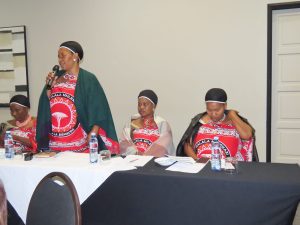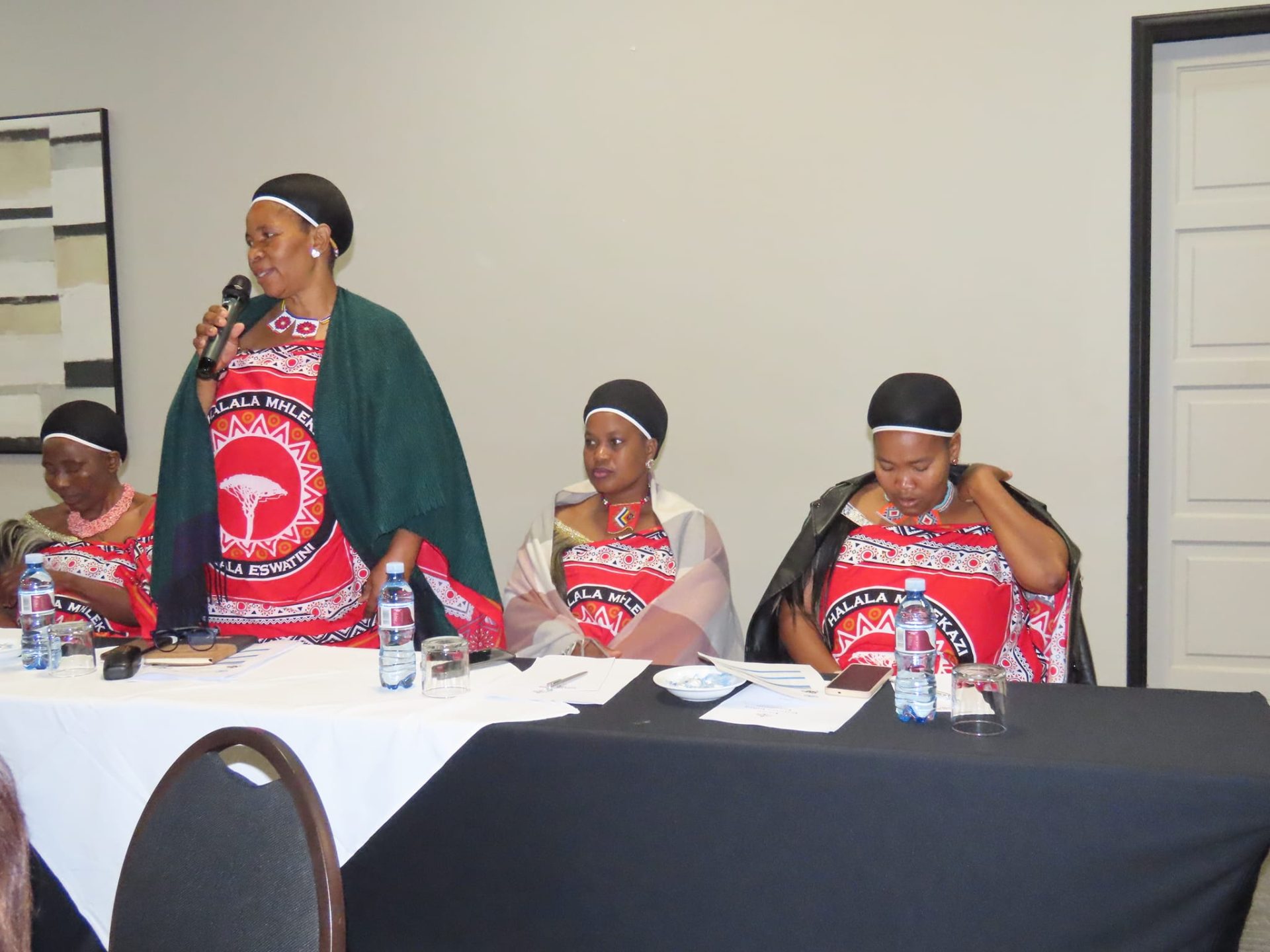By Delisa Thwala
His Majesty King Mswati III’s Government has revealed that they need the Lutsango regiment’s vital input in modifying the Legal Aid Bill.
Through the Minister of Justice and Constitutional Affairs HRH Prince Simelane, the government said women in the country were the pillar and their opinion mattered the most.
“They are essential, and we need their voice and opinion. There is a lot we could achieve as the country if we upheld women and sincerely sought their advice,” said Simelane.
He spoke during the sensitization session with Lutsango on the Legal Aid Bill and the Legal Practitioner’s Act Amendment Bill.
This meeting provided a crucial opportunity to engage with the community and ensure a deep understanding of these bills, which are pivotal in enhancing access to justice for all.
In 2023 the Eswatini Legal Aid Office opened its doors for the first time to the public following its launch by then Minister of Justice and Constitutional Affairs, Honorable Pholile Shakantu.
The launch was attended by development partners, senior government officials, representatives of the judiciary, legislature, academia, Law Society of Eswatini, and civil society organizations.
The establishment of Eswatini Legal Aid is in response to the fact that many people, particularly the poor and marginalized, face difficulties when encountering the justice system because of its complexity.

For example, the justice system can be challenging to understand and navigate because of obstacles such as lack of financial resources, inadequate awareness of how to access services, insufficient command of the legal language, and long distances to service providers.
As a result, the United Nations Development Programme (UNDP) provided technical support to the Ministry of Justice and Constitutional Affairs in developing the National Legal Aid Policy adopted by the Cabinet in September 2022 and establishing the office at the RHUS Office in Mbabane.
Legal aid aims to enhance poor and marginalized people’s ability to access justice by offering them legal services at the cost of the state.
This aligns with Goal 16 of the Sustainable Development Goals on promoting peaceful and inclusive societies, providing access to justice for all, and building effective, accountable, and inclusive institutions at all levels.
ALSO READ: Lutsango sing praises to Their Majesties for free lihiya
Speaking further at the event, Simelane acknowledged that many people do not have access to justice following a survey on Legal Aid Needs in Eswatini 2022 commissioned by the American Bar Association
Rule of Law Initiative (ABA ROLI) working in partnership with the Ministry of Justice and Constitutional Affairs as part of the ABA ROLI’s Women and Girls Empowered (WAGE) program in the country.
“This survey is instrumental in giving evidence which supports that 58% of emaSwati cannot afford the services of a lawyer, and 90% express that they would use legal support if made accessible,” said Simelane.
He said Eswatini Legal Aid should roll out its services by focusing on four thematic areas; legal information and awareness, advice and referrals, mediation, and legal assistance, which includes representation.
“However, since legal aid is at the inception stage, legal aid services will be provided incrementally starting with the first three, which will not include legal representation in courts pending the coming into force of Legal Aid legislation,” he said.

Although the public demands access to lawyers to make representation in court, she said the office cannot provide this service immediately.
However, she was certain that the services would be made available once the legislative framework was established.
“I should however hasten to point out that the legislative framework in the form of the Legal Aid Bill for full operationalization of the Legal Aid office is being processed.
I am optimistic that the Bill will be prioritized by the next parliament,” said the Minister.
Meanwhile, UNDP Resident Representative, Rose Ssebatindira, said access to justice is vital to the UNDP mandate to reduce poverty and strengthen democratic governance.
She said within the broad context of justice reform, UNDP’s specific niche lies in supporting justice and related systems to work for the poor, disadvantaged, and marginalized.
ALSO READ: King commends Lutsango’s turnout, wants a CD of their songs
“Therefore, the launch of the Eswatini Legal Aid Services aligns with one of our thematic areas; Governance which speaks to supporting governments to build strong institutions to service the marginalized, particularly women, children, youth, and people with disabilities,” she said.
She urged all stakeholders to reflect on raising awareness of Legal Aid, making it accessible, and ensuring that it is sustainable.


